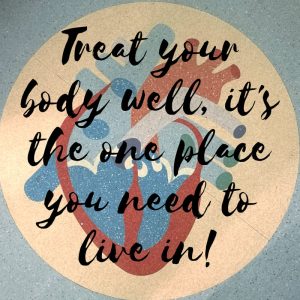Newsletter October 2019 – Fasting, Nourishment and the Gut-brain
11 October 2019
Fasting, Nourishment and the Gut-brain
“How can a troubled mind
Understand the way?
If a man is disturbed
He will never be filled with knowledge.
An untroubled mind,
No longer seeking to consider
What is right and what is wrong,
A mind beyond judgments,
Watches and understands.
(From: Mind; Dhammapada, Sayings of the Buddha)
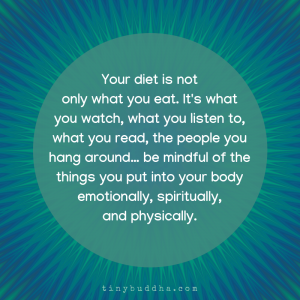
It’s been a while since my last blog. Those who know me might have a difficult time believing that I’m actually feeling quite shy, not qualified to write or being recorded on any medium.
But I’ve had some encouraging feedback from unexpected corners and I realize that the longer I avoid the next post the lengthier it gets.
So here is what this summer came up with for me, the stuff that life brought forward and the experiences I’d like to share with you.
For about 6 months now I’m keeping to an intermittent fasting routine, as mentioned in an earlier newsletter, I only eat within a period of 8 hours (usually from 1 to 9pm) and consume no nutrients for the remaining 16 hours of the day. I’m loving it, not only because I’ve got rid of this small but persistent little 50’s belly but much more for the fact that my love and awareness of eating and preparing food has increased, even in some unexpected ways: my felt attachment to food, the comfort in eating. After months of “practice” my body knows very well by now that there will be food coming, no need to panic when supplies are running low in the mornings. Finding myself in emotionally challenging situations I sometimes surprise myself thinking of eating, a bit like my dog that is running for cover to his food bowl when getting too much loving and cuddles. This is quite similar to my experience of smoking, after having kicked the addiction. The thought of a cigarette now leads me to reflect on what it is that I’m trying to avoid by triggering this old reflex.
There are many different kinds of fasting, some more extreme than others, not everybody has to go as far as my friend Alan who says that anything less than 72 hours is not really fasting. I’ve met quite a few people that spontaneously eat only 1 or 2 meals a day. About 12 hours after your last meal your body will be running on reserve, burning the stuff that otherwise would get wrapped up in fat cells for a rainy day that usually never comes. Some background information on this you can find here.
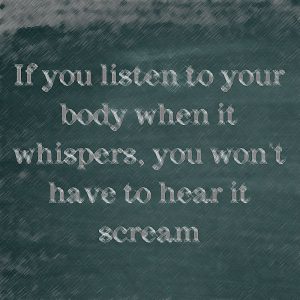
You are what you eat, more to the point though: you are how you eat. This sentiment is initially inspired by Charles Eisenstein’s book “The Yoga of Eating” and now came up again when reading this summer the truly fascinating “Nourishment” by Fred Provenza – both of which I can highly recommend to all interested or working in the field of nutrition. Like in any other domain surrounding us we are seeing a paradigm shift happening in how we are beginning to understand the relationship between our bodies and the natural world as well as the connections between the material and spiritual world. We live in a society obsessed with dieting; a multi billion-dollar industry is thriving on it. But despite of all research, recommendations and regulations it does not look like we are making much progress in terms of healthy and balanced eating habits. Partly this can certainly been attributed to our more and more sedentary lifestyles – what cigarettes were for my generation are chairs for our children – and a systemically corrupted agricultural and pharmaceutical industry responsible for the production and manipulation of most of our food supplies, but truly behind this lies the disempowerment of the individual with regards to both responsibility and judgment/expertise. We trust authorities more than our palates and we consume food with as little awareness as we consume most other things on this planet. A packet of crisps is never big enough when washed down with a couple of pints and an exciting football match on TV; we choose the newest scientifically developed diet before old wisdom innately inside of us. “Newtonian physics cannot offer the whole truth about the human body, let alone the universe. Medical science keeps advancing, but living organisms stubbornly refuse to be quantified.” (Bruce Lipton, The biology of belief) The sheer multitude of components in our food, our hereditary and environmental factors, age, seasons, down to the time of day, and order in which foods are consumed is far too vast an amount of data to grasp or measure for one individual only, let alone for larger groups or societies at large. “The body – not nutritional scientists and medical doctors – is the final authority in our food choices.” (F.Provenza) To support the individual, more often than not out of tune when it comes to food choices, we need to cultivate an inner wisdom, an awareness when eating, with an outer wisdom, personal knowledge of nutrition and physiological digestion processes. Going back to the crisps: Truly aware of texture, the flavour, undistracted by conversation or anything else, my bet is you wouldn’t want to get very far into the packet. Eating consciously we can (re) learn to understand the feedback messages our bodies are sending back to us with the knowledge we have acquired heretically, in the womb of our mothers and in childhood.
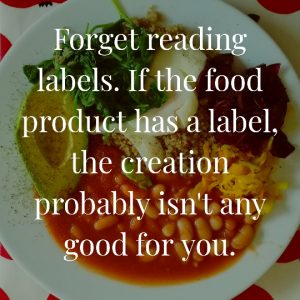
The Australian aborigines apparently know that humans have three brains. The biggest and most important one being the gut, second the heart and third the smallest one, highly overrated it seems, between our ears. They know it is vital to ensure balance between these different centers. To some degree this has been recognized by recent scientific research; for any signal from the brain to the gut there are about 9 signals from the gut to the brain.
The importance of nutrition and a thriving gut biome for maintaining physical and mental health and in treating diseases – in particular chronic inflammatory disorders – is getting on the forefront of public discourse and scientific research (some interesting articles here and here). What would have been ignored or ridiculed a mere decade ago will most likely be in the center of medical care in the coming years, rather than pharmaceutical intervention aimed at the symptoms, predominant in today’s allopathic medicine. Interestingly, I was invited to and participated in a clinical trial this summer, paid for by a big pharmaceutical company, testing the effects of high doses of natural probiotics on psoriasis patients, an indication that even Big Pharma is catching up on more natural ways of healing. Still, I don’t think that healing comes as a pill, as natural the content may be, but rather requires a more holistic change of lifestyle and living environment in general.
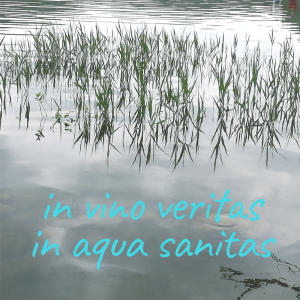
Paradoxically enough, right now I’m finding myself in the middle of a nutritional dietary course called Pure21, a three-week program that cleanses, detoxifies and re-balances the micro biome. I’ve teamed up with a nutritional therapist, Sue Thomas from Worcester, who developed this program around nutritional supplements by the American Company Synergy. It aims at supporting individuals with a wide range of conditions such as fatigue, IBS, leaky gut, heartburn, menopausal and hormonal imbalances, sleeping disorders, weight problems, bloating, irritability, lack of focus and motivation. From my discussions with her I consider Sue a very experienced therapist and she is reporting great results from this program on herself and her clients. After my own “trial” we will be offering a one-off course for the cost of the supplements only as a case study of mine. More about this with a summary of my personal experience you will find in my November newsletter. If you are interested in participating please be in touch.
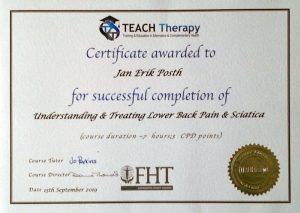
In September I attended a one-day course on advanced treatments of lower back pain. I love studying, meeting other therapists, refreshing old and acquiring some new tricks and knowledge to help my clients. I also did a course on complementary treatment for people with cancer, I will be writing in more detail in my next month’s newsletter.
Look forward hearing from you all.
Take care of your minds and your bodies.
With LOVE and GRATITUDE
Jan Erik
